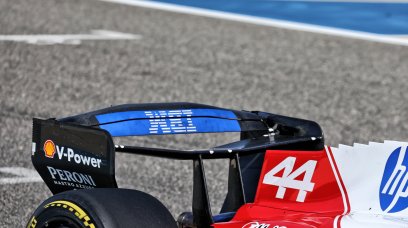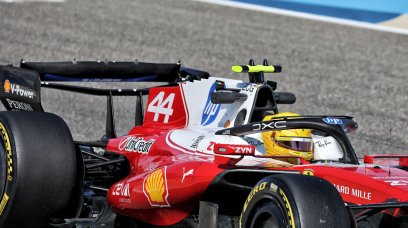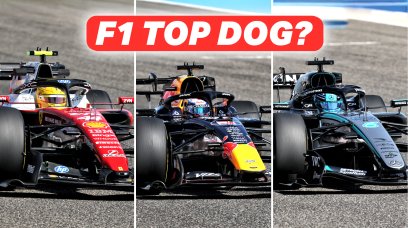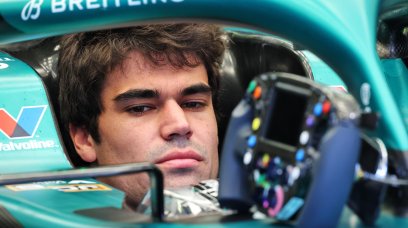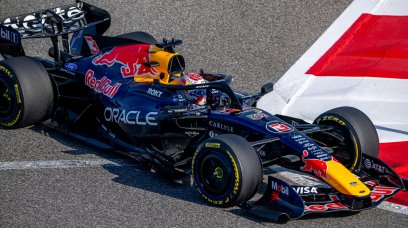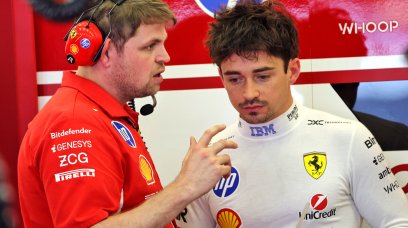Formula E’s peloton-style of racing returned with a bang last weekend at the São Paulo E-Prix, and once again divided opinions. Peloton races are effectively when a high number of overtakes occur, as a result of the drivers wanting to sit in the slipstream to preserve their energy. This has been caused by some races having low usable energy or a high number of laps. It is a very different style of racing compared to what we saw in Mexico City and Diriyah, where the race distance had been miscalculated by the FIA, resulting in an almost flat out race. As a result, the opening three rounds featured minimal overtaking. The same could not be said in São Paulo, where 212 competitive overtakes were completed. When the peloton-style is in operation, Formula E consistently produces the most overtakes in single-seater racing. But are the overtakes genuine? Some yes, some no. We have seen some drivers slow down considerably in braking zones to lose places, although in many ways, this is no different to an F1 driver giving up a position to the car behind to gain DRS. The closing laps of Formula E’s fourth round last Saturday was genuine, hard racing, which ended with a spectacular overtake by Sam Bird at the penultimate corner to claim victory. Peloton races do result in moments of concern, particularly when the bunched drivers go from high to low speed at a hairpin, for example. Hairpins during peloton races are traditionally chaotic, and usually the home of several incidents.
Damage galore
It was no different at Turn 3 in São Paulo, where pieces of front-wing were scattered across the circuit. Several drivers even finished the race without their front-wing, whilst Nick Cassidy had a heavy crash after driving over his front-wing. Cassidy had hit multiple drivers, resulting in his front-wing suddenly becoming dislodged at high-speed. The championship leader’s front-wing was lodged under his car, leading to him losing control. It was a reminder of the dangers of the peloton-style, which was seen in its most extreme form in Portland last season. In Portland last year, Nico Müller suffered a huge crash measured at 27G, caused by damage picked up in the peloton. Thankfully, the Swiss driver walked away, although some do sense that it is just a matter of time until the peloton results in a truly horrific accident. Upcoming races in Berlin, Shanghai and Portland will all follow this style, to the concern of some. There is no doubting that the peloton-style is exciting to watch, but with the cars continuing to become faster (Gen3 top speed is 200 mph), is it too dangerous? The answer to this question varies depending on which driver you ask, with McLaren’s Jake Hughes having admitted in Brazil that he does not like the peloton races.
Importance of finding 'right ratio'
“I don't like it personally,” Hughes told RacingNews365. “The problem is when everyone's so close on the entry to a big straight like Turn 1, then when you add a slow corner after that it only gets worse. “It just becomes a traffic jam. And then you encourage people to try an outside move which would never work. Sometimes it pays off and you win two, then the next lap you lose three. It's a completely different race in the middle of the pack compared to at the front. That's the problem.” Maserati’s Maximilian Günther is another driver who wants to see less peloton races, although he recognises that they make for exciting viewing for the fans. To combat the questionable style of racing, the German would like to see the drivers receive either more energy or for the number of laps to be reduced. “Personally, I would prefer less of the peloton,” Günther conceded to RacingNews365. “Obviously, I'm not making the rules up. But I think what would be great is to have the right ratio on each track of saving, to enable racing. “But only to the extent you don't have a peloton race, because the energy that we get going into the race is just not enough. We would need to drive fewer laps or get more energy, one of the two. "The ratio needs to add up, because somebody takes the lead here, leads the race all the time, they get destroyed and will maybe not even finish in the points. “This gives you an idea of the amount of saving you have to do. I think if we can address this ratio it would be great. As a racing driver, as a team, you have to adapt to any challenge you have. "Personally, it’s cool to have these different kinds of races, some races more peloton-style, some more on pure pace, pure efficiency, some more on track position, because it's hard to overtake. “I think it’s good to have something like this for the fans, for everybody to get this action.”
Title favourites not concerned
On the flip side, reigning world champion Jake Dennis did not think the peloton was too extreme in São Paulo and shared his view that it made for an exciting E-prix. "From my side, Portland was way worse," Dennis also told RacingNews365. "At the front is a bit more difficult, like there's a lot of slowing down and stuff. But my side I felt like that was a pretty good Formula E race. "It was a bit messy at times. But I mean, there's so much overtaking with these cars if we don't have the energy, like advantage. So it's neat." Despite his scary crash, even Cassidy believes the peloton-style was manageable last weekend and resulted in a thrilling spectacle. "No not really, because there wasn't actually that much passing," Cassidy told RacingNews365. "I think that was a great Formula E race, the drivers at the front did a fantastic job so well done top them. I've just got to be better."
Most read
